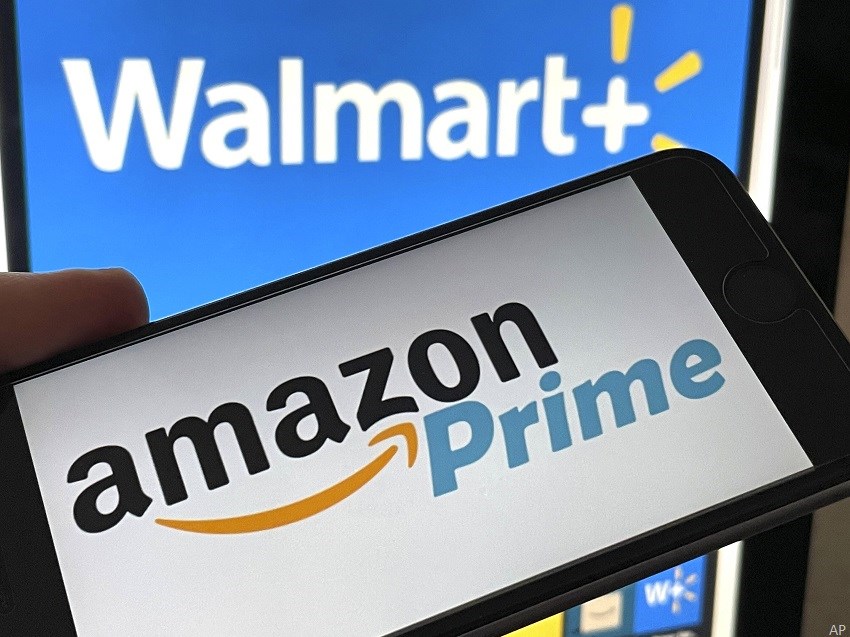
Few retailers have the distribution strength, e-commerce platform, and brand to effectively compete against Amazon in any broad way—except, perhaps, Walmart. Walmart has the cost advantages, scale and e-commerce capabilities to keep Amazon on its toes.
We’re pitting these two retailing giants against each other to determine which is the better stock to buy now based on Morningstar’s proprietary metrics. Is it time to buy Amazon stock? Or is it time to buy Walmart stock?
As part of this feature, we’re providing free access to the full Morningstar Analyst Reports for both companies for a few weeks. By using the Analyst Reports for Amazon stock and Walmart stock, an investor can dig into some of Morningstar’s proprietary metrics more deeply and find out what our analysts have to say about each company’s business strategy, competitive advantages, valuation, and risk. Investors also have access to similar metrics about close competitors, and the bull and bear cases for both stocks. Just click through the links below to access the complete reports for each stock.
Here’s how Amazon and Walmart currently score on a few key investment metrics as of June 7, 2022:
Amazon Stock AMZN
- Price/Fair Value: 0.64
- Fair Value Uncertainty: High
- Morningstar Economic Moat Rating: Wide
- Morningstar Capital Allocation Rating: Exemplary
Walmart Stock WMT
- Price/Fair Value: 0.89
- Fair Value Uncertainty: Medium
- Morningstar Economic Moat Rating: Wide
- Morningstar Capital Allocation Rating: Standard
Who wins this stock versus stock matchup? That depends on what Morningstar metrics matter most to an investor. Let’s take a deeper dive into four of them.
Price/Fair Value Winner: Amazon
Morningstar’s analysts calculate a fair value estimate for each stock they cover. The fair value estimate represents the intrinsic value of a stock, based on how much cash we think the company can generate in the future. A stock’s price/fair value is simply its current market price divided by the fair value estimate. A stock trading below 1.0 is undervalued; a stock trading around 1.0 is fairly valued; and a stock trading above 1.0 is overvalued.
As of this writing, we think Amazon’s stock is about 36% undervalued, while Walmart’s stock is 11% undervalued. The winner from a price perspective is Amazon stock, which is trading at a more attractive price today.
Watch: The Morningstar Fair Value Estimate
Uncertainty Winner: Walmart
Morningstar’s uncertainty rating represents the predictability of a company’s future cash flows and, therefore, the level of certainty we have in our fair value estimate of a given company. Companies that enjoy sales predictability, modest operating and financial leverage, and limited exposure to contingent events carry low uncertainty; those with less-predictable sales, significant leverage, and significant exposure to contingent events carry higher uncertainty.
Our analysts think Walmart’s cash flow uncertainty is medium, while Amazon’s uncertainty is high. Walmart stock wins for its lower uncertainty because we’re more confident in our fair value estimate of that stock.
Economic Moat Winner: Tie
The Morningstar Economic Moat Rating represents a company’s maintainable competitive advantage. A company with an economic moat can fend off competition and earn high returns on capital for many years to come. A company whose competitive advantages we expect to last more than 20 years has a wide moat, one that can fend off its rivals for 10 years has a narrow moat, while a firm with either no advantage or one that we think will quickly dissipate has no moat.
Our analysts think both Amazon and Walmart have carved out wide economic moats. It’s a tie.
Watch: The Morningstar Economic Moat Rating
Capital Allocation Winner: Amazon
The Morningstar Capital Allocation Rating represents our assessment of how well a company manages its balance sheet, investments, and shareholder distributions. Analysts assign each company one of three ratings—Exemplary, Standard, or Poor—based on their assessments of how well a management team provides shareholder returns. Adept corporate managers can make a good company even better.
Amazon earns an Exemplary capital allocation rating, while Walmart earns a Standard rating. Amazon stock for the win here.
Which Is the Best Stock to Buy Today?
At the end of the day, the “winner” of any stock-versus-stock match from Morningstar’s perspective is the stock that’s trading at the largest discount to our fair value estimate after being adjusted for uncertainty. The Morningstar Rating for stocks encapsulates just that. Stocks rated 4 and 5 stars are undervalued after being adjusted for uncertainty, stocks rated 3 stars are fairly valued, and stocks rated 1 or 2 stars are overvalued after being adjusted for uncertainty.
Amazon stock earns a 4-star rating as of this writing, while Walmart stock earns a 3-star rating. Amazon is the better stock to buy today from Morningstar’s perspective.
Watch: The Morningstar Rating for Stocks






















